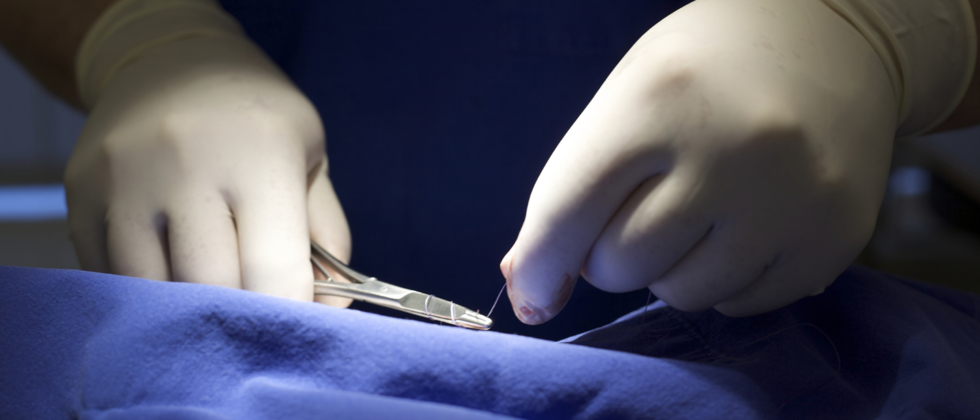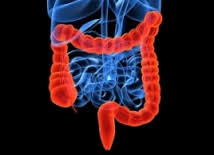
How long should pain last after anal surgery?
- Patients typically experience pain for 1-3 weeks after anal surgery.
What can I eat after surgery?
- After anal surgery, you can eat your normal diet, but we recommend foods that do NOT cause constipation for you.
- After abdominal/intestinal surgery, where a new bowel or intestine connection is made by Dr. Parker, you can eat most anything, but PLEASE AVOID ROUGHAGE and INSOLUBLE FIBER for 3 WEEKS.
- Specifically avoid peels and skins. For example, you can eat canned fruit, chewed well. You can eat steamed/cooked carrots and peas, but please avoid broccoli, celery, asparagus, cauliflower, leafy vegetables. You can peel and remove seeds on cucumbers and tomatoes, and chew them well.
- You can eat soluble fiber, found in Benefiber, and foods without significant "roughage". Refried beans, for example, should be fine.
- We recommend you peel and cook all vegetables for 3 weeks, after which you can eat anything you want.
- Daily fiber recommendations are 25 grams for women and 38 grams for men.
What can I do to help relieve the anal pain?
-- You can take the prescribed pain medication, which does include Acetaminophen (max 4000 mg/day).
- If you choose an Acetaminophen and Ibuprofen combination, please take as follows: Tylenol 1000 MG every 6 hours alternating with Ibuprofen 600 MG every 6 hours, so every 3 hours you can take something.
- You may also call our office for a prescription of an ointment, Diltiazem with Lidocaine, which can help relax the internal anal sphincter, to help with anal spasms.
- This is a compound ointment made at Higganum Nutmeg Pharmacy and costs $45.00, as insurance does not cover.
- You may also do warm water baths or Sitzbaths to help relax the anal spincter muscle. This refers to irrigating your bottom in a basin of warm water. You can do this for 10-15 minutes 3-4 times daily.
I feel a loose stitch near anus, so what do I do?
- I use absorbable stitches that dissolve.
- If you feel a stitch causing irritatioanal n, you should call us.
Is bleeding normal after surgery?
- You may experience some bleeding and mucus drainage.
- You may use gauze or a pad to avoid staining your clothing.
- Bleeding can occur with bowel movements or vigorous wiping.
- If excessive bleeding, please call us or go to the closest emergency department.
How do I clean the anus?
- You can apply antibiotic ointment or Calmoseptine to skin around the anus.
- You can shower immediately after anal surgery.
- You can wipe the anus normally with toilet paper, wet wipes or both.
I feel like there is a new hemorrhoid, what do I do?
- Swelling is common and patients may interpret swelling as a new hemorrhoid.
- Swelling should improve.
- If you're concerned that you developed a new hemorrhoid, you should be seen by a provider.
How long should I wait until returning to work after anal surgery or abdominal surgery?
- Patients typically return to work within 1-3 weeks after anal surgery.
- Patients can return to work within 2-4 weeks after abdominal surgery, depending on symptoms and type of work.
What do I do for constipation after surgery?
- It's possible to not have a bowel movement for 1-2 days after surgery.
- You may experience bloating and abdominal cramping with constipation.
- Maintain adequate fiber intake using supplements and fiber-based foods
- Drink 2 liters (64 oz) of water and non-caffeinated beverages per day, if your heart/kidneys allow.
- You may use the following to help alleviate the constipation, but try not to create diarrhea:
Milk of Magnesia (15-30 mL) use 1 dose every 4 hours as needed
Mineral Oil: 1 tablespoon orally each night without other meds
Miralax: 17 grams taken 1-2 times daily
Colace: 100 MG twice daily to soften stool
I am unable to urinate, what do I do?
- If you have not urinated for approximately 6 hours after the operation, or if you have pelvic pain/pressure, please come to the emergency department.
When should I have my postoperative visit with Dr. Parker?
- Typically, patients are seen 4-6 weeks after surgery. You may choose an appointment in the office, by telemedicine, or be telephone call.
What should I watch for in regards to concerns after surgery?
- Please call our office if you have a fever, chills, nausea/vomiting, or inability to move bowels, despite trying laxatives
What are my restrictions after abdominal surgery (colon, rectum, abdominal hernia)?
- No aerobic exercise for 2 weeks and no lifting over 25 lbs for 4 weeks
I am scheduled to have part of my colon/rectum removed and Dr. Parker mentioned an ostomy bag is a possibility. How does that work?
- Dr. Parker advises patients that a "temporary" ostomy bag may be needed to divert stool away from the new bowel connection, especially if the connection has a higher risk for leakage, as determined by Dr. Parker.
- If an ostomy is created, nurses will educate you on how to manage this until ostomy reversal.
How does diverticulitis work before and after surgery?
- If you choose NOT to have surgery, you have a 30-40% chance of "flare-ups".
- After surgery, if the outcome is successful, your risk for further diverticulitis is about 4%.

